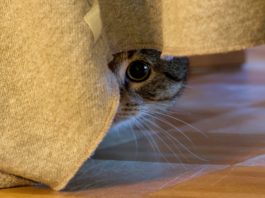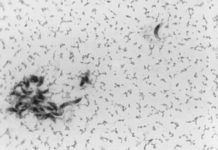Fewer Heartworm Cases, More Severe Signs
Cats are less commonly infected by heartworms than dogs, and approximately 80 percent of infected cats clear the infection without signs of disease, but studies have shown the incidence of infection to be greater than previously thought. One study found that between 2 and 5 percent of shelter cats were harboring heartworms. Other statistics show that the prevalence of heartworm disease in cats likely approaches 5 percent, and that it can even occur in cats living indoors.
Restricting Sodium Intake Isnt Necessary With Hypertension
My 10-year-old domestic shorthaired cat has just been diagnosed with high blood pressure during a visit to his veterinarian. I was shocked to learn this, as he does not show any signs of having a problem, and I am now very concerned about how to keep him healthy. I am working with his veterinarian to treat him, but should I be restricting his salt intake?
Heart Diseases Often Undetected Signs
All cats face the risk of heart disease, from domestic shorthairs to prized rare breeds, but the signs can remain undetected for years before resulting in diminished or total loss of cardiac function. The challenge for owners is to be alert to subtle changes in their cats.
In the News: Kitty Gastrointestinal Disease Testing
Two different disorders in cats - inflammatory bowel disease and a cancer of the gastrointestinal tract called alimentary lymphoma - have similar signs, including lack of appetite, weight loss, vomiting and diarrhea.
In the News: Searching for Genetic Clues in Siamese and Related Breeds
Amyloidosis is found in Oriental shorthair, domestic shorthair, Siamese, Burmese and Abyssinian breeds. The disease develops when the abnormal protein amyloid, a fibrous substance, collects for unknown reasons in tissues and organs. The disease can become fatal if amyloid is deposited in the tissue of critical organs, such as the kidneys, liver or heart. The disease also affects humans.
Hypertension A Threat to Cats?
Hypertension in people can damage the heart, eyes, kidneys and brain. As dangerous as it is for us, hypertension - also known as high blood pressure - can cause equally serious problems for our cats, especially those 7 years of age and older. Yet its symptoms arent always evident, even to experts. The disease is insidious, meaning signs may come on slowly or not be that apparent. Its been called the silent killer for that very reason. Cats may be a little bit lethargic or may act strangely, but in most cases its not obvious, says cardiologist Bruce Kornreich, DVM, Ph.D., ACVIM, Associate Director of the Feline Health Center at Cornell University College of Veterinary Medicine. The most important thing to keep in mind is target organ damage.
Diagnosing with Doppler and Avoiding ‘White Coat Syndrome’
Veterinarians commonly diagnose hypertension with a Doppler system that detects blood flow acoustically. This method uses an inflatable cuff with a gauge that measures pressure within it, a stethoscope and a unit that uses Doppler signals to detect blood flow. The veterinarian or technician places the cuff around a limb, inflates it until blood blood flow in the limb is blocked and then gradually deflates the cuff until blood flow is detected once again. …
The CBC, a Diagnostic Powerhouse
In this age of high-tech veterinary tools like digital X-rays and color Doppler ultrasound, one humble blood test - a complete blood count - remains at the forefront of diagnosis. A single drop of blood contains millions of cells, and with a scant half teaspoon, your cats veterinarian can quickly identify nearly two dozen types of cells to diagnose conditions ranging from anemia and autoimmune disease to cancers and infections.
A Tech Draws Blood With a Quick Squeeze and Prick
Although your kitty probably wont like his blood being taken, he wont suffer any major discomfort - just a squeeze, a prick and perhaps a little stress, mostly from being restrained.
Evaluating a Transdermal Appetite Stimulant for CKD
The drug mirtazapine, used to treat depression in people, has a surprising side effect in pets: It can stimulate appetite and, in some cases, control nausea and vomiting, which are signs of chronic kidney disease (CKD) in cats.
A DNA Test Helps Diagnose Anemia
Cats suffer kidney disease more often than many other species, including dogs and humans. Almost all geriatric cats have some kidney damage. Because the kidneys produce a hormone that stimulates red blood cell production, when the kidneys fail, cats may experience anemia, which is low red-blood cell concentration in the blood. Anemia may limit the delivery of oxygen to vital tissues. It cant be dismissed merely as tired blood to be cured by magic elixirs. Anemia can be life threatening and may occur suddenly. At other times, it may be a clue to a chronic underlying problem like kidney disease. However, advances in veterinary medicine are providing hope.
Ask Elizabeth: April 2015
I recently fostered a rescue dog I was told had eaten the feces of a feral cat while being housed in another foster home. This cat subsequently had his stool tested, and it came back positive for toxoplasma gondii. The dog unfortunately defecated in my car while I was transporting him and I am concerned that I may have been exposed to toxoplasma while cleaning up the mess in my car. Do I need to worry about this?











